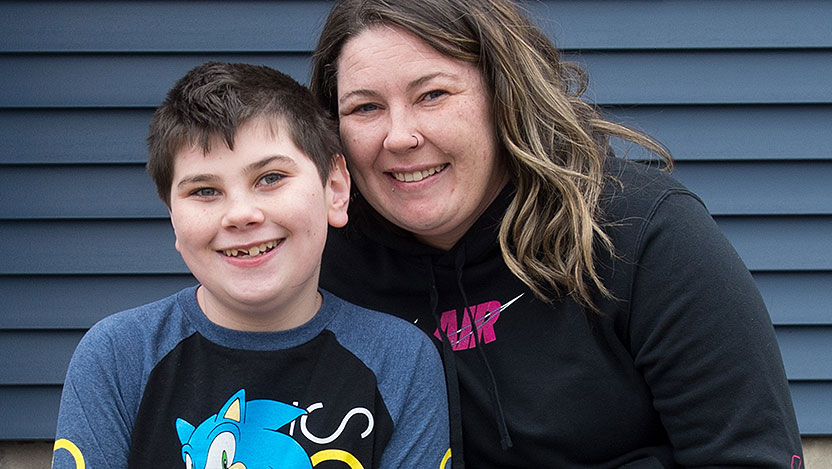Pediatric Epilepsy Surgery

If medication does not effectively control your child's seizures or your child doesn’t tolerate medication well, our epilepsy specialists may recommend surgery. Children’s brains are still developing, which makes them good candidates for epilepsy surgery. However, the percentage of patients we recommend for surgery is relatively small.
At the Pediatric Epilepsy Center, we perform a number of seizure surgeries in children.
Meet our Pediatric Epilepsy Physician Team
Why Choose Comer Children's for Your Child's Epilepsy Surgery?
Historically, the University of Chicago Medicine Comer Children's Hospital has made important breakthroughs and continues a legacy of excellence in pediatric epilepsy surgery.
For example:
- Our surgeons have the experience and expertise to perform pediatric epilepsy surgery on children at a younger age than at many institutions.
- We have successfully implanted the first pediatric responsive neurostimulation (RNS) in the State of Illinois
- We are the first facility in Illinois to offer MRI-guided stereoelectroencephalography (SEEG) and laser ablation surgery.
- Our team has extensive experience in minimally invasive surgical techniques for the treatment of gelastic epilepsy, including stereotactic radiosurgery and laser ablation.
Sophisticated 3D Imaging for Surgical Precision
Before your child has surgery, our experts will create 3D images of the electrical activity in your child’s brain. To do this, we use noninvasive monitoring techniques that combine complex mathematical equations with MRI images and EEG data. The data we gather from these tests, otherwise known as electrical source imaging studies, helps our specialists determine if surgery is the best treatment option for your child. Then, our pediatric neurosurgeons use the data to help them carefully plan the safest, most effective and efficient approach to surgery. We are one of a handful of epilepsy centers offering this advanced technology to young patients.
Minimally Invasive Surgery for Pediatric Epilepsy
In addition to performing traditional resections for focal epilepsy, we also offer minimally invasive, stereotactic high-precision techniques both for diagnosis and treatment of focal epilepsy.
Types of Surgery for Pediatric Epilepsy
Some children who have partial (focal) seizures may be candidates for RNS. First, a neurosurgeon implants a small stimulation device in the skull bone beneath your child's scalp. Up to two EEG leads are placed in or on the brain at the precisely identified seizure source(s). Then they are connected to the stimulator. Once powered, the stimulator monitors and records electrical activity in the brain. When the device detects abnormal activity, it delivers a mild electrical shock to stop the seizure. With RNS, your child will not be aware when a seizure is detected or interrupted.
RNS may be an option when:
- Medication is not effective
- Seizures originate from more than one source
- The seizure origin(s) are in brain tissue that cannot be safely removed
Our epilepsy team is the first in Illinois to offer MRI-guided SEEG and laser ablation surgery. If your child has a single, well-defined seizure focus, we may be able to use this minimally invasive procedure to safely and effectively eliminate the brain tissue where the seizures originate.
During the SEEG procedure, your child’s surgeons place electrodes into the brain to monitor brain activity and precisely locate the seizure focus. The neurosurgeon then eradicates the seizure source with pinpoint accuracy, using a tiny laser applicator in the MRI scanner. Continuous real-time imaging allows the neurosurgeon to monitor the effects of the treatment.
With SEEG and laser ablation, we are able to precisely identify and target the seizure source while preserving as much of the surrounding healthy brain tissue as possible. This can also minimize side effects.
Using highly focused X-rays, your child’s neurosurgeon applies high doses of radiation directly into the epileptic focus. This minimally invasive procedure destroys the targeted area without damaging the healthy brain tissue around it.
Stereotactic radiosurgery is a particularly effective treatment for gelastic seizures (laughing seizures) and dacrystic seizures (crying seizures), which are most commonly associated with a benign brain tumor called a hypothalamic hamartoma.
- In children who have very frequent and severe seizures with extensive damage in the affected hemisphere
- In infants and children who are still capable of growing brain tissue to replace what has been removed
- When less aggressive surgeries won’t work
- When the benefits outweigh the risks

Image-Guided Laser Surgery Becoming Go-To Option for Epilepsy
In a clinical trial, our neurosurgeons use minimally invasive, image-guided laser surgery to treat certain types of epilepsy.
Read the articleRequest an Appointment
We are currently experiencing a high volume of inquiries, leading to delayed response times. For faster assistance, please call 1-773-702-6169 to schedule your appointment.
If you have symptoms of an urgent nature, please call your doctor or go to the emergency room immediately.
* Indicates required field
